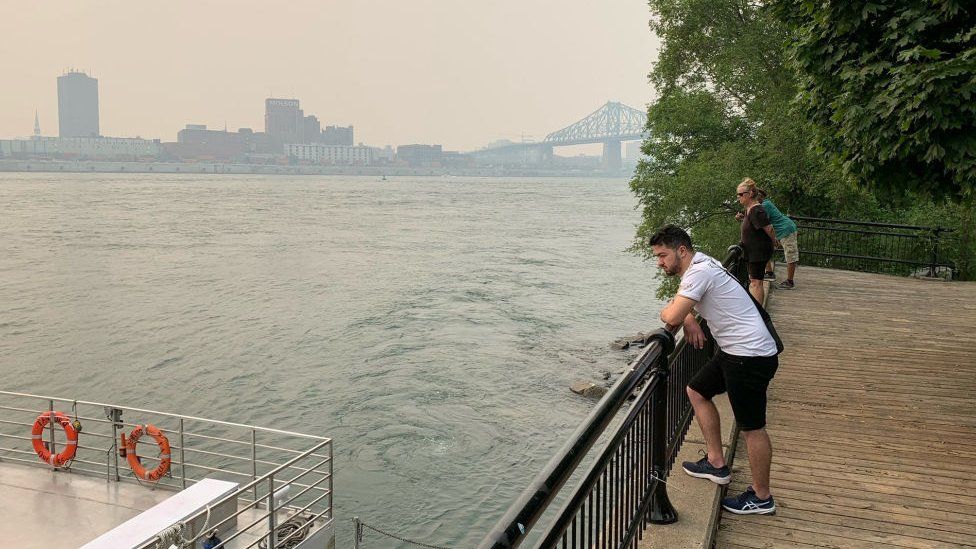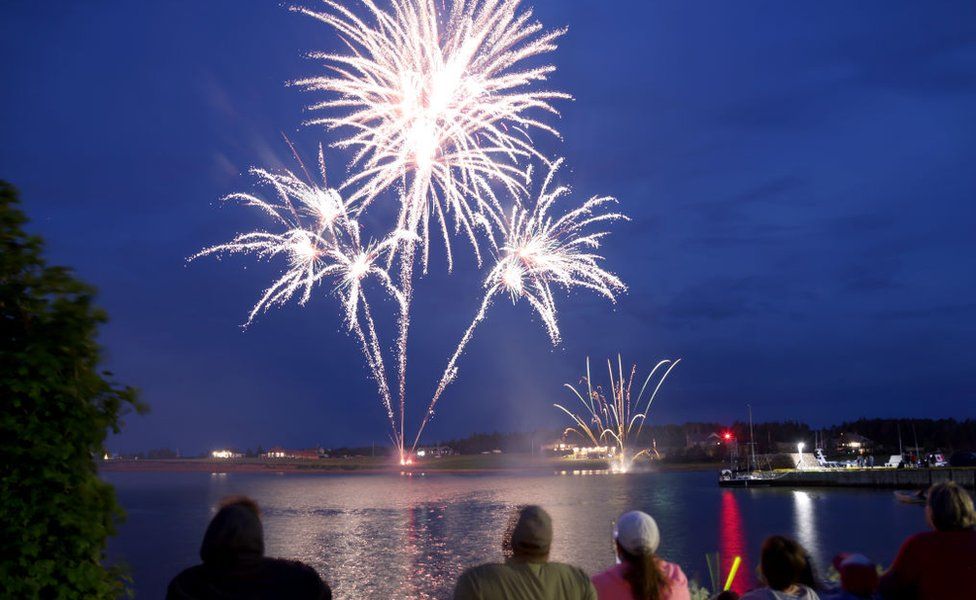Some Canada Day fireworks displays have been postponed due to the persistently poor air quality over North America and concerns about starting new fires.
The US Fourth of July celebrations taking place next week have raised concerns about the air quality.
Large portions of the US and Canada have been covered in smoke this week.
On Friday, a list of the biggest cities with the worst air quality included New York, Toronto, Montreal, and Washington, D.C.
The city's Canada Day fireworks display, scheduled for Saturday night, has also been canceled, along with the opening night of an annual fireworks competition in Montreal on Thursday.
However, a celebration is still planned for Toronto. According to a spokesperson, the city was still keeping an eye on the situation, but as of late on Friday, no changes were anticipated.
The British North America Act, which united the four British colonies into one new nation in 1867, is remembered on July 1 as a national holiday. It is traditionally observed with outdoor activities, such as fireworks, just like the Independence Day holiday in the US.
A few cities and towns in some of the worst-affected regions postponed or cancelled their Canada Day fireworks displays or relocated them away from wooded areas.
During what has already been deemed Canada's worst wildfire season in records, officials are concerned not only that the explosives will worsen already poor air quality but also that they could start more fires.

Uncertainty surrounds the holiday commemorating the US Independence Day. According to Dave Roth, a forecaster with the Weather Prediction Center of the US National Weather Service, it is challenging to predict smoke drift over the long term.
He noted that weekend rain in New England would probably improve the region's air quality, saying, "The areas over the next day and a half that we expect the most smoke are across Minnesota, Wisconsin and parts of the north-eastern United States.".
He said, "Showers and thunderstorms are great for purging the atmosphere.
The cancellation of fireworks displays in two Missouri towns is reportedly the result of another weather factor, including extreme heat and drought.
Bad air has arrived in the middle of the continent just in time for the holiday weekend thanks to the Canadian wildfires.
According to Anastasia Montgomery, a researcher at Northwestern University in Chicago, "it's pretty well known that the Fourth of July tends to be one of the worst air quality days of the year.".
She emphasized that "it's not just the fireworks.". There is a lot more traffic and grilling because of the holiday, which also causes bad air quality because of the heat. ".
According to Mr. Roth, there will be smoke until the Canadian fires are put out. Additionally, he claims that wildfires in the western United States, specifically Texas and Arizona, have been spotted recently. Compared to the fires in Canada, the region has experienced relatively few wildfires so far this year, but that could change.
Cooler temperatures, which arrive in September and October, and eventually rain and snow, "are what end the fire season in the US and Canada," the man said.







